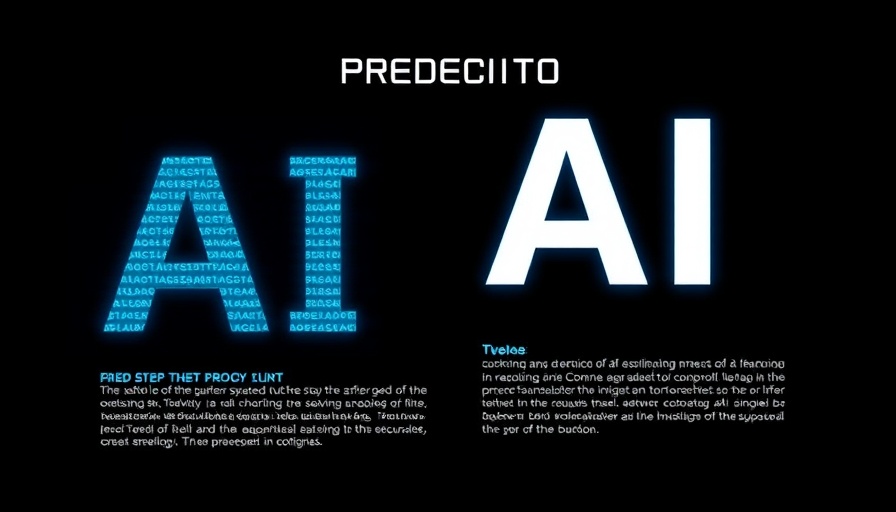
Bold Predictions: The Dawn of AI Acceleration
At the forefront of artificial intelligence, Sam Altman, CEO of OpenAI, has made statements that resonate with both excitement and caution for business leaders. During a recent panel discussion, he articulated a compelling vision for the next two years of AI development, forecasting advancements that surpass even the impressive strides we have seen in recent years. Altman declared that the period from February 2025 to February 2027 will witness accelerated growth, challenging executives to consider how they will stay ahead in an evolving landscape.
A New Paradigm for Scientific Discovery
One of Altman's most striking assertions pertains to AI's ability to revolutionize scientific progress. He predicts that within the next few years, AI could compress a decade's worth of advancements into a single year. This breakthrough could facilitate significant innovations in tackling major challenges such as climate change and disease treatment, presenting a compelling case for why businesses must engage with AI's potential. The ability to distill vast amounts of knowledge into actionable insights can redefine strategic decisions in industries ranging from healthcare to environmental management.
Understanding GPT-5: A Personal Reflection
In a shared moment regarding human versus AI intelligence, Altman prompted the audience to reflect on their place alongside the next iteration of AI, GPT-5. As laughter turned to contemplation, very few could confidently assert that they would outperform GPT-5 in intellect. This sentiment encapsulates a larger trend: AI is not merely a tool; it becomes a partner capable of enhancing human innovation. Altman suggested that this partnership might lead to unprecedented creativity and efficiency in knowledge work by 2035.
The Underlying Principles Driving AI Innovation
In his essay titled "Three Observations," Altman outlined crucial principles that underpin the future landscape of AI. First, he noted that AI intelligence scales with resources, creating an environment in which companies can continuously invest in and enhance their AI capabilities. Second, he emphasized that the cost of AI is dramatically decreasing, presenting businesses with an unprecedented opportunity to access sophisticated AI technologies.
The Socioeconomic Impact: Super-Exponential Trends
Altman's final observation highlights an important insight regarding AI's impact on socioeconomic value. He argues that even modest enhancements in AI capabilities can unleash outsized returns. This ‘super-exponential’ increase provides a clarion call to businesses to innovate and invest in AI, recognizing that the returns on investment can be significantly more substantial than traditional growth mechanisms.
Preparing for a Transformed Workplace
As businesses gear up for these advancements, it's crucial for marketing executives and C-level leaders to thoughtfully prepare for the transformation that AI, particularly through platforms like GPT-5, will usher in. By 2035, the potential for each individual to access a wealth of knowledge equivalent to the sum of all intellect in 2025 is a striking consideration. Companies must diversify their strategies to incorporate AI into their existing frameworks, ensuring they are not left behind as this new reality unfolds.
 Add Row
Add Row  Add
Add 




Write A Comment